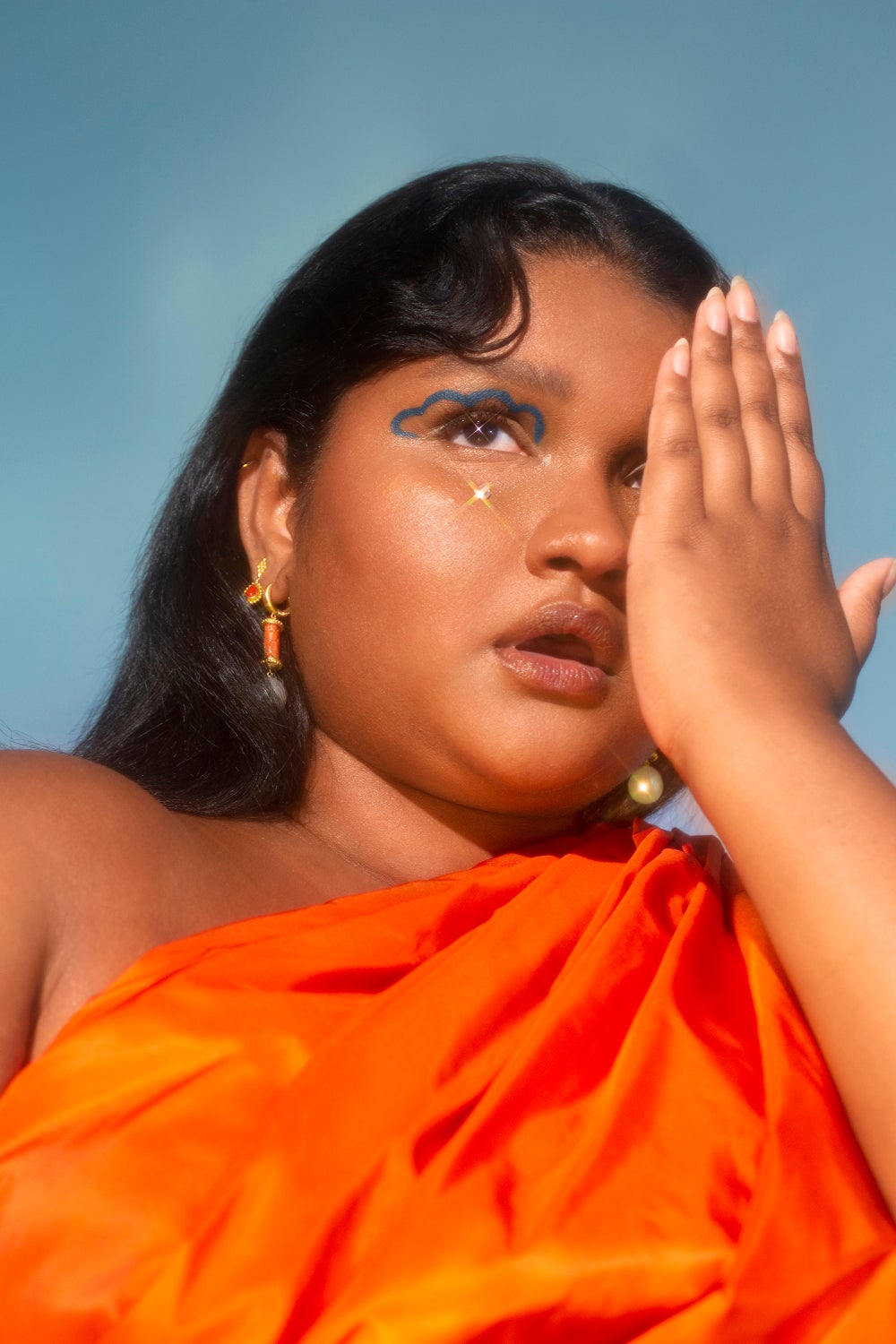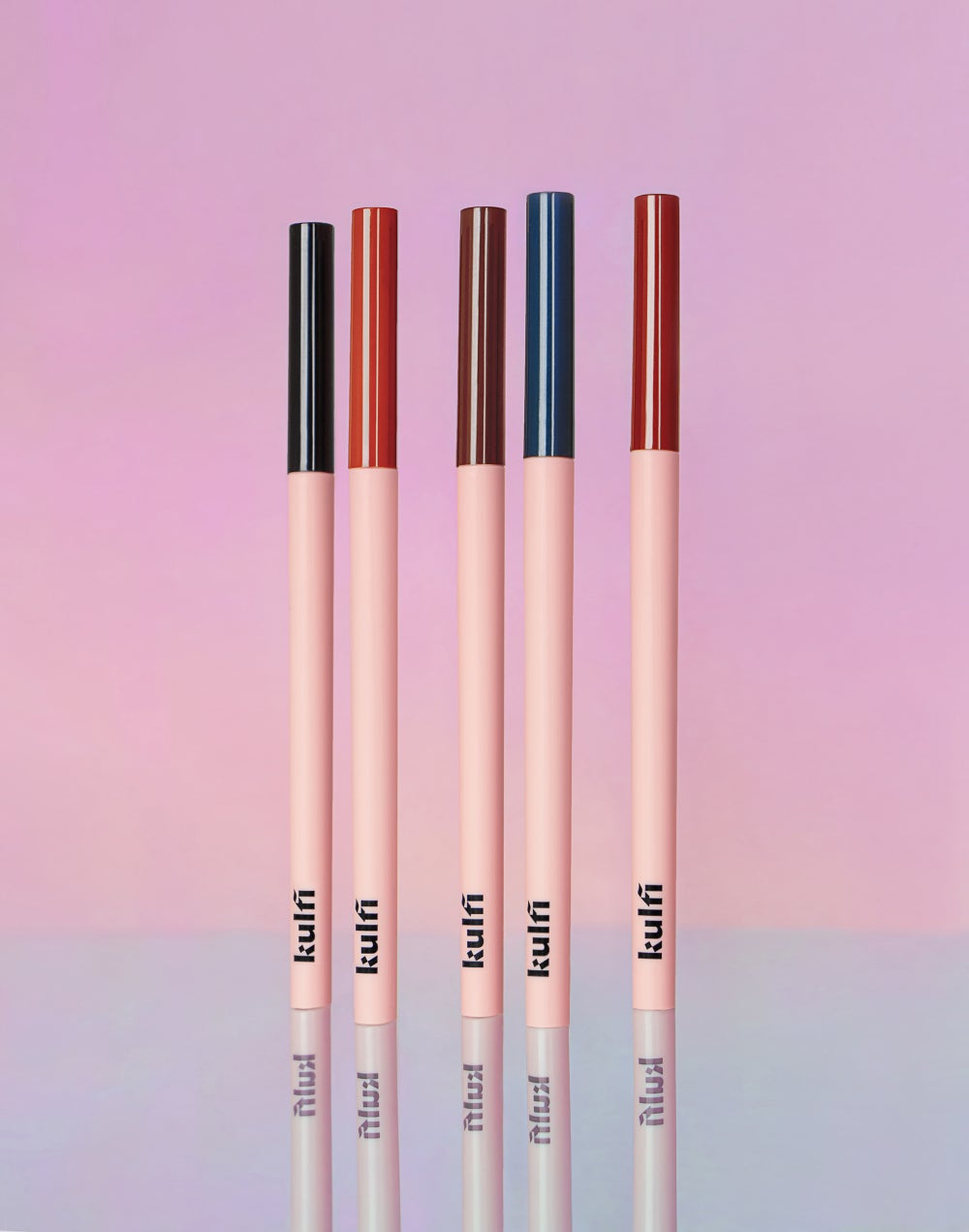How This Founder Is Challenging Us to Unlearn Toxic Expectations When it Comes to Beauty Priyanka Ganjoo is on a mission to challenge our relationship with makeup.
By Mita Mallick Edited by Jessica Thomas
Opinions expressed by Entrepreneur contributors are their own.

Growing up, my mother never wore makeup. I remember a jar of Olay face cream on her dresser nestled next to a bottle of Beautiful perfume. From time to time, she'd paint her toenails red or occasionally put on lipstick for very special events. My mother's simple beauty regimen is the reason why, to this day, I've never embraced wearing makeup. And the truth is, even as an adult I don't know how to wear makeup. No one ever taught me how.
"Growing up in South Asian culture, I wasn't allowed to participate and use makeup," says Priyanka Ganjoo, founder and CEO of Kulfi. "We weren't supposed to attract attention, and we were actively discouraged from focusing on anything beauty related. My mother never showed me how to use makeup either."
As an adult, my relationship with makeup has slowly evolved. I'll use a little bit of blush, a touch of eyeshadow and maybe a dab of lip gloss. But never eyeliner — it requires too much precision for someone who doesn't know what they're doing.
Enter Kulfi. Its award-winning kajal eyeliner has made me love eyeliner. It's easy to use, and the intense, long-lasting color doesn't budge, sparing me of raccoon eyes. Nazar No More (black) is my absolute favorite, although I hope to try some of the bolder colors like Rain Check (blue) and Purply Pataka (berry).
Although the beauty industry was hit hard by the pandemic, marketers like Ganjoo have been resourceful, coming up with innovative ways to sell to customers. Many direct-to-consumer brands like Kulfi found success when consumers had no other choice but to shop online. In 2020, the global beauty industry spend was $483 billion, and by 2025 it's expected to be $716 billion. And where those sales are coming from is rapidly changing: Online sales will make up 48% of spend by 2023.
"While we had to delay the launch of Kulfi due to the pandemic, it ended up working out for the best," Ganjoo says. "It gave our team a chance to really grow our community of Kulfi fans in a digital-first environment and made the launch a huge success."

Here are three of the biggest lessons Ganjoo has learned in building Kulfi.
Understand your why
"Growing up, I wasn't one of the pretty girls," Ganjoo says. "I was extremely curious, excelled in school and spent my summers in Delhi eating kulfi, a type of Indian ice cream. I named the company Kulfi as an ode to that little girl, now that I have the power to reclaim beauty for myself and so many others."
Ganjoo remembers starting her career at Boston Consulting Group and being told by coworkers that she looked tired. She didn't wear makeup at the time, and she felt pressured to go and purchase concealer to cover her dark circles. "I'll never forget that visit to the cosmetic counter. They told me my nose was too big; it needed contouring," she shares. "They told me I needed to groom my eyebrows. They sold me over 20 products I didn't know how to use, some of which didn't even match my skin tone. I left feeling even more insecure and didn't feel like myself."
With Kulfi, Ganjoo is focused on her why and her purpose for building this brand. She wants women to unlearn the toxic expectations that are set for us when it comes to beauty. "When I was younger, I wasn't supposed to wear makeup because it might attract men, and I would be attracting the wrong attention," she says. "Then I entered the workforce, and I was pressured to wear makeup so I didn't look unprofessional."
Now, with Kulfi, Ganjoo wants women to wear makeup for themselves. She wants them to play with makeup and have fun with it. She wants it to bring them joy and be a way to express themselves. And finally, for all women to feel fierce and confident using Kulfi.
Challenge the playbook
Though her first foray into makeup wasn't a positive experience, Ganjoo later ended up in the beauty industry herself, first at Estée Lauder and then at Ipsy. After years of building beauty brands for industry titans, she left Ipsy to build Kulfi. At the time, the marketing playbook was running Facebook and Instagram ads to create awareness, and hiring a celebrity was another quick fix to building a brand.
"From the beginning, I challenged that playbook, and that made people uncomfortable," Ganjoo says. "I knew I wanted Kulfi to be a community for all the people who looked like me, who had been excluded by beauty brands for far too long." She drew inspiration from Glossier and Glow Recipe, both of which built strong followings. The products they continue to launch are all community driven.
Originally, Ganjoo wanted to launch with a concealer to match her undertones. But the Kulfi community she was building had other ideas. "Every woman I talked to wished she had a better kajal eyeliner in her makeup kit," she says. "No one was excited about this product. It was our opportunity to reinvent it."

Historically, kajal is one of the most popular beauty products in India. It was originally applied as a form of protection, used to shield the eyes from harsh rays of sun and to ward off the evil eye.
"With the launch of the Kulfi eyeliner, we wanted to celebrate South Asian beauty, accentuating beautiful dark eyes and eyebrows and giving women an easily accessible, no-hassle product," Ganjoo says.
Embrace your role as the visionary founder
For Ganjoo, the road to fundraising hasn't been easy. Before Kulfi launched, investors told her "the market is too small," and "South Asian beauty is not aspirational" and "using dark skinned models won't sell." She didn't listen to them. She was determined to build a brand that celebrated and centered South Asians in its narrative.
After a successful pre-seed fundraising round, with a majority of women of color investing, it has changed her perspective on who will continue to be on her cap table. "To the extent I can pay it forward, I want to do that," she says. "I want as many women of color building Kufli with me as possible.
Ganjoo will never forget what one investor said to her. "You need a visionary co-founder, that was the feedback," she says. "Despite all of my credentials, I still continue to face bias as a South Asian woman founder. Why do I need a white man as a co-founder sitting next to me to bring me credibility?"
Here's what Ganjoo knows for sure. Countless customers have told her that Kufli looks and feels so fresh and so different from what's in the beauty marketplace. "That's because Kufli has shifted the perspective to center the people who have been left behind."
Her advice now to all entrepreneurs listening: "Remember that you are the visionary founder. Don't let anyone else convince you otherwise."










